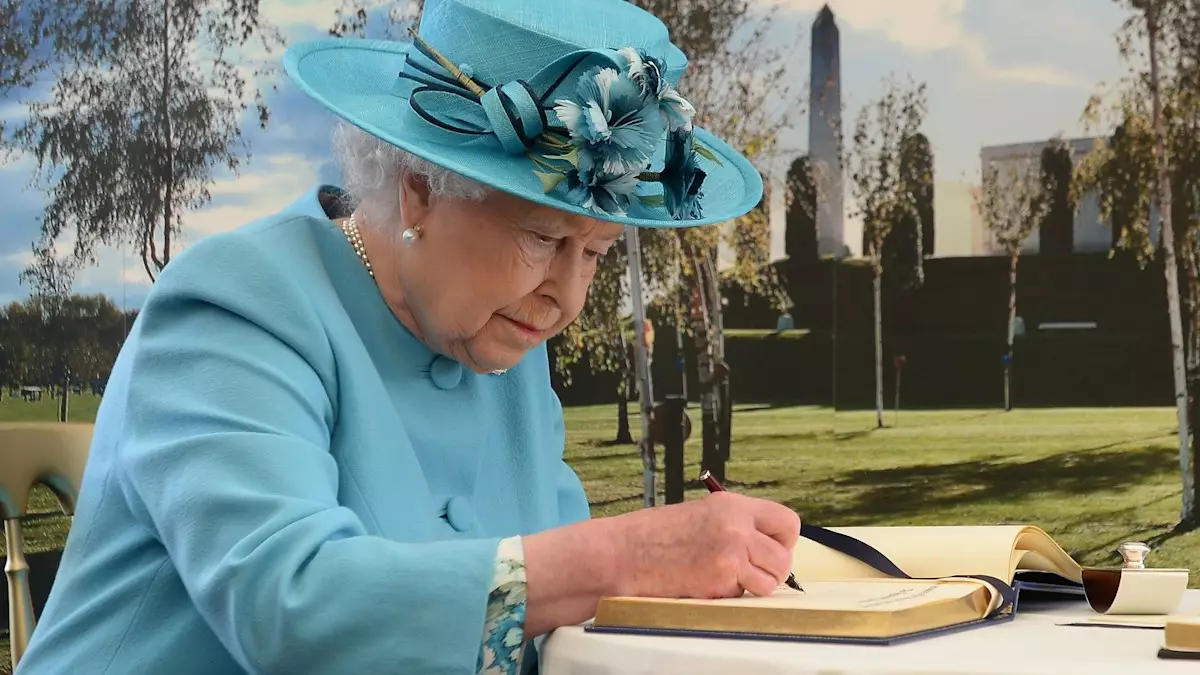In recent discussions among royal experts, it has become apparent that Queen Elizabeth II’s personal diaries are set to come under scrutiny in the coming years. Prominent royal biographer Robert Hardman revealed in a recent podcast that while the contents of these diaries may remain closely guarded, there is a strong likelihood that an official biographer will be appointed by King Charles III to craft the narrative of the late monarch’s life. This development has sparked intrigue and speculation about how these private reflections may shape the understanding of Her Majesty’s legacy.
Hardman emphasized that direct access to the diaries is improbable. He noted that while previous monarchs have allowed their official biographers to access personal documents, Queen Elizabeth’s unique position and the potential sensitivity of the contents may restrict public access. The comparison with past practices reveals a careful balance between revealing the intimate thoughts of a monarch and safeguarding the dignity of the royal family. In the case of Queen Elizabeth II, it seems that while her life will ultimately be chronicled, the inner workings of her mind may remain elusive, preserved as private musings that are not meant for public scrutiny.
In addition to the discussions surrounding the diaries, Hardman also delved into the intricate planning involved in royal funerals, shedding light on a well-organized yet discreet operation. He introduced the concept of “Operation London Bridge,” the codenamed plan established for Queen Elizabeth II’s eventual passing that had been meticulously curated over two decades. Such forethought underscores the immense logistical challenges that accompany marking the death of a figure as significant as the Queen.
This meticulous planning regime operates with the understanding that such events require not only an extensive deployment of military personnel but also a coordinated effort from police forces and media outlets. Each royal has their own designated operation name, serving as a reminder of the intricate layers of preparation that underlie public ceremonies. For example, the plans for the Queen Mother were designated as “Operation Tay Bridge,” emphasizing the personalized approach to each royal’s farewell.
Through these lenses, it is evident that the royal family continues to navigate its responsibilities with a blend of tradition and modernity. The appointment of an official biographer for Queen Elizabeth II will serve as a conduit for future generations to connect with her legacy, despite the constraints surrounding her personal reflections. Meanwhile, the systematic approach to preparing for royal funerals, embodied by operations like London Bridge, reflects the monarchy’s need to maintain control and dignity even in sorrowful moments.
As we await further developments on both fronts, the combination of these royal narratives and planning strategies will undoubtedly contribute significantly to the public’s perception of the monarchy in the 21st century. While we may remain distanced from the intimate thoughts of Queen Elizabeth II, the historical context provided by her biography and the careful orchestration of her farewell will ensure that her impact endures in the annals of history.

